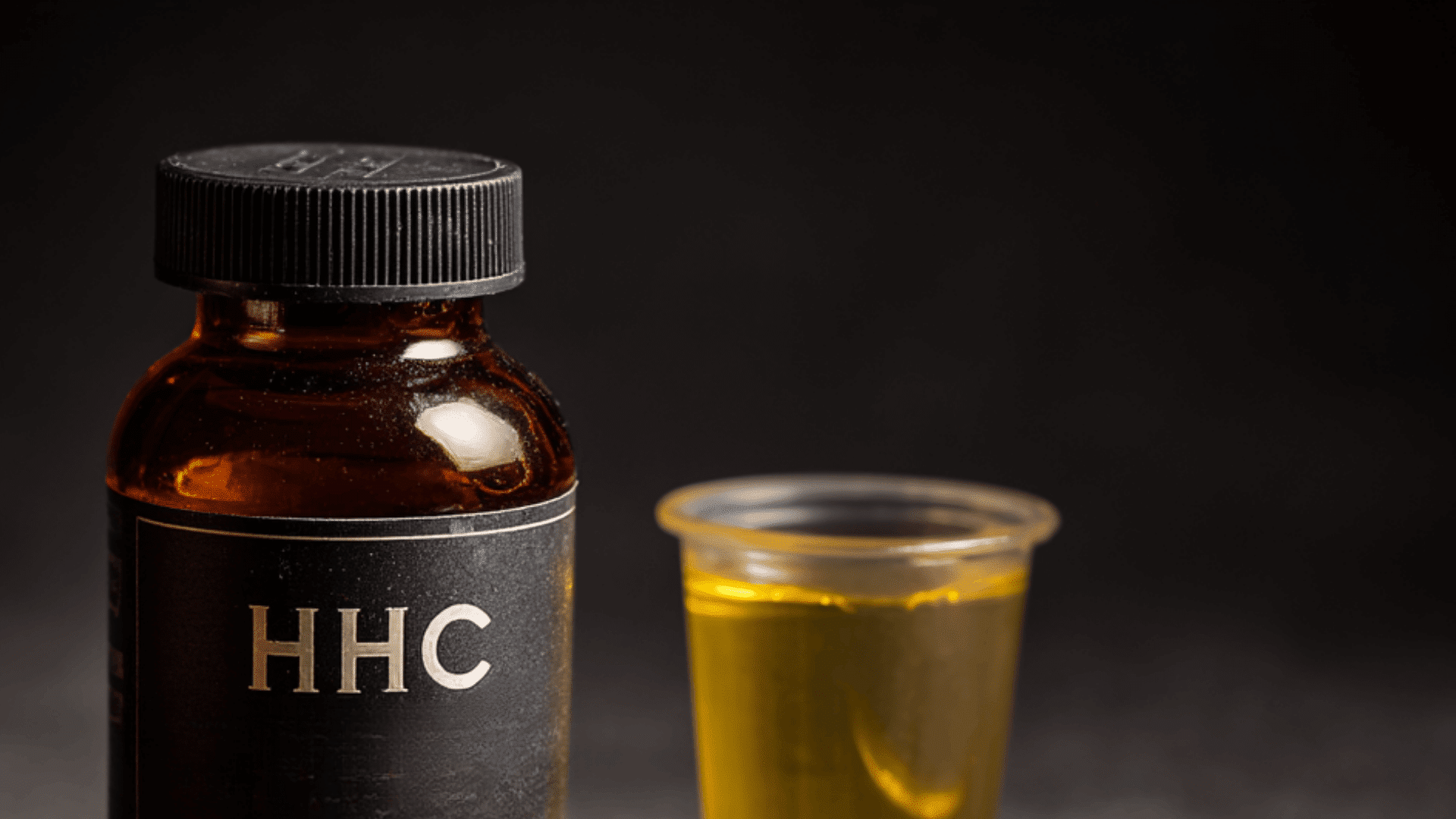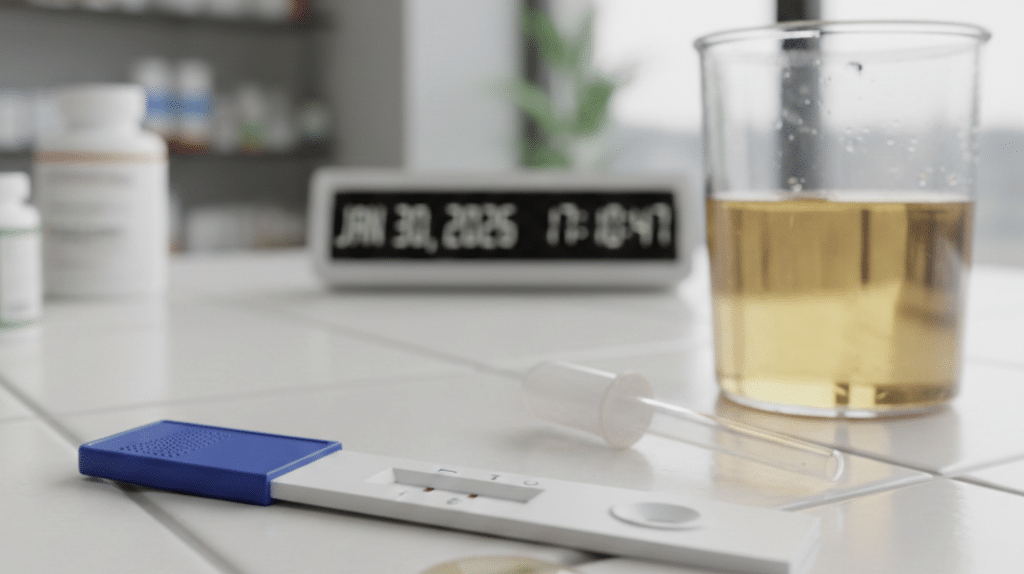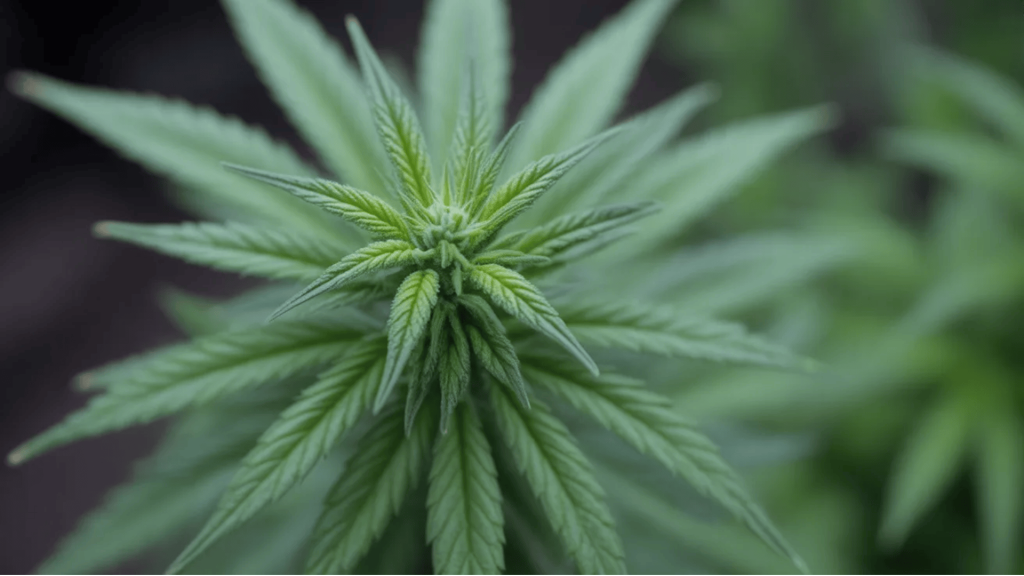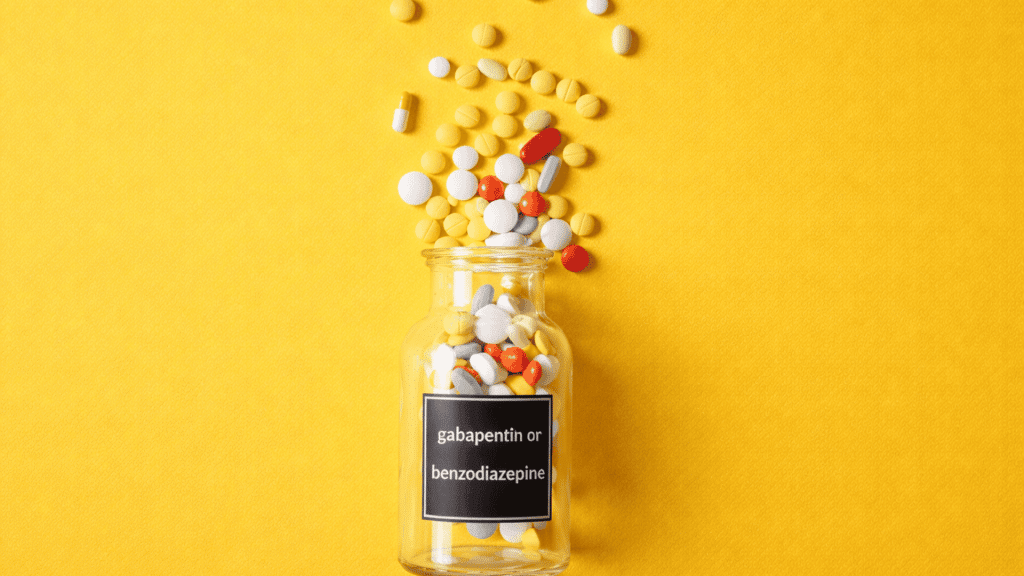If you’ve been hearing about HHC and wondering how it stacks up against THC, you’re not the only one out there.
This semi-synthetic cannabinoid has gained attention as a “legal alternative,” but its chemistry and effects tell a more complex story.
While it may feel similar to THC, the way it’s made, how it interacts with your body, and how it shows up on a drug test are all worth understanding before you try it.
Today, I’ll explain what it really is, how it compares to other cannabinoids, what current science says about detection risks, and how to make informed choices if testing is a concern.
Disclaimer: This article is for informational and educational purposes only. It does not promote, encourage, or endorse the use of HHC, THC, or any cannabinoid products. Always consult a healthcare professional if you have concerns about testing, legality, or health effects.
Can HHC Show Up on a Drug Test?
Yes, HHC can show up, or more precisely, HHC use can trigger a positive result on a standard drug test designed for THC. That’s because:
- HHC’s metabolism produces compounds like 11-OH-HHC and HHC-COOH, which are chemically close to THC metabolites.
- Standard immunoassay urine tests look for THC metabolites, not HHC specifically, but they may mistake HHC’s metabolites for THC’s.
While there’s no widely accepted standard test specifically targeting HHC, the overlap can lead to false positives.
Here are some scenarios where the risk is higher:
- If you use HHC frequently or in high doses, the chance of accumulation and detection increases.
- If the product labeled “HHC” contains trace amounts of THC (manufacturing contamination), then the test may detect actual THC.
- If your employer uses highly sensitive tests or confirmation methods, cross-reactivity becomes more probable.
In short, even though the test isn’t explicitly for HHC, you’re not fully safe from a “failed” test. If you’re in a job or legal situation where testing matters, you should treat HHC use as a risk.
What is HHC and How Does It Differ from THC
Hexahydrocannabinol (HHC) is a semi-synthetic cannabinoid that’s derived from hemp. It’s created by adding hydrogen atoms to a molecule like CBD or THC.
It’s similar to the well-known psychoactive compound Delta-9-tetrahydrocannabinol (Delta-9 THC) but has small chemical tweaks.
Now, how does HHC compare with other cannabinoids like Delta-8-tetrahydrocannabinol (Delta-8) and Delta-9 THC?
- Delta-9 THC is the main “high” compound in cannabis and is the one most drug tests target.
- Delta-8 is a milder variant of THC, slightly different in its structure and effects.
- HHC sits somewhere in between. It’s more stable than THC under heat/light, and users describe its effects as somewhat similar to THC but often less intense.
Because HHC is chemically close to THC, it shares some legal and testing grey areas. Although HHC itself may not always be listed in standard drug panels, the resemblance to THC can cause confusion in screenings.
In short, HHC might feel like a “legal alternative” to THC, but when it comes to tests, that similarity might work against you.
How Standard Drug Tests Work

Here, I’ll walk you through the main types of drug tests and how they pick up THC or related compounds.
Common Test Types
- Urine tests – the most frequent for employment/screening. They look for THC breakdown products.
- Blood tests – less common for routine screenings, but useful for recent use or legal cases.
- Saliva tests – capture recent consumption (hours or up to a day).
- Hair tests – long-term use detection (weeks to months).
What are Metabolites like THC-COOH?
When your body breaks down THC, it doesn’t just vanish. It produces by-products called metabolites, such as THC-COOH. These are what many tests look for.
Why Cross-Reactivity Happens
Because HHC is so similar to THC in structure, the metabolites it generates can look like THC-derived compounds. This overlap means that some tests may flag HHC use even though they weren’t designed for it.
So, the test isn’t necessarily looking for HHC, but it might still pick it up due to the similarity.
Detection Windows by Test Type
Let’s look at how long HHC (or its metabolites) may linger in your system by test type. This gives you a ballpark to work with. Keep in mind it varies a lot.
| Test Type | Occasional Use | Frequent/Heavy Use |
|---|---|---|
| Urine | ~3-7 days | Up to ~30+ days |
| Blood | ~24-48 hours | A couple of days |
| Saliva | Up to ~1-3 days | Up to ~2-3 days |
| Hair | Up to ~90 days | Up to ~90 days (or more) |
Several factors influence detection time:
- How much and how often you use HHC
- Your metabolism and activity level
- Body fat percentage (cannabinoids are fat-soluble)
- The sensitivity of the specific drug test
So if you’re facing a urine test and you’ve used HHC recently, it’s plausible you could test positive days later, especially if you’re a regular user.
How Long Does HHC Stay in Your System?
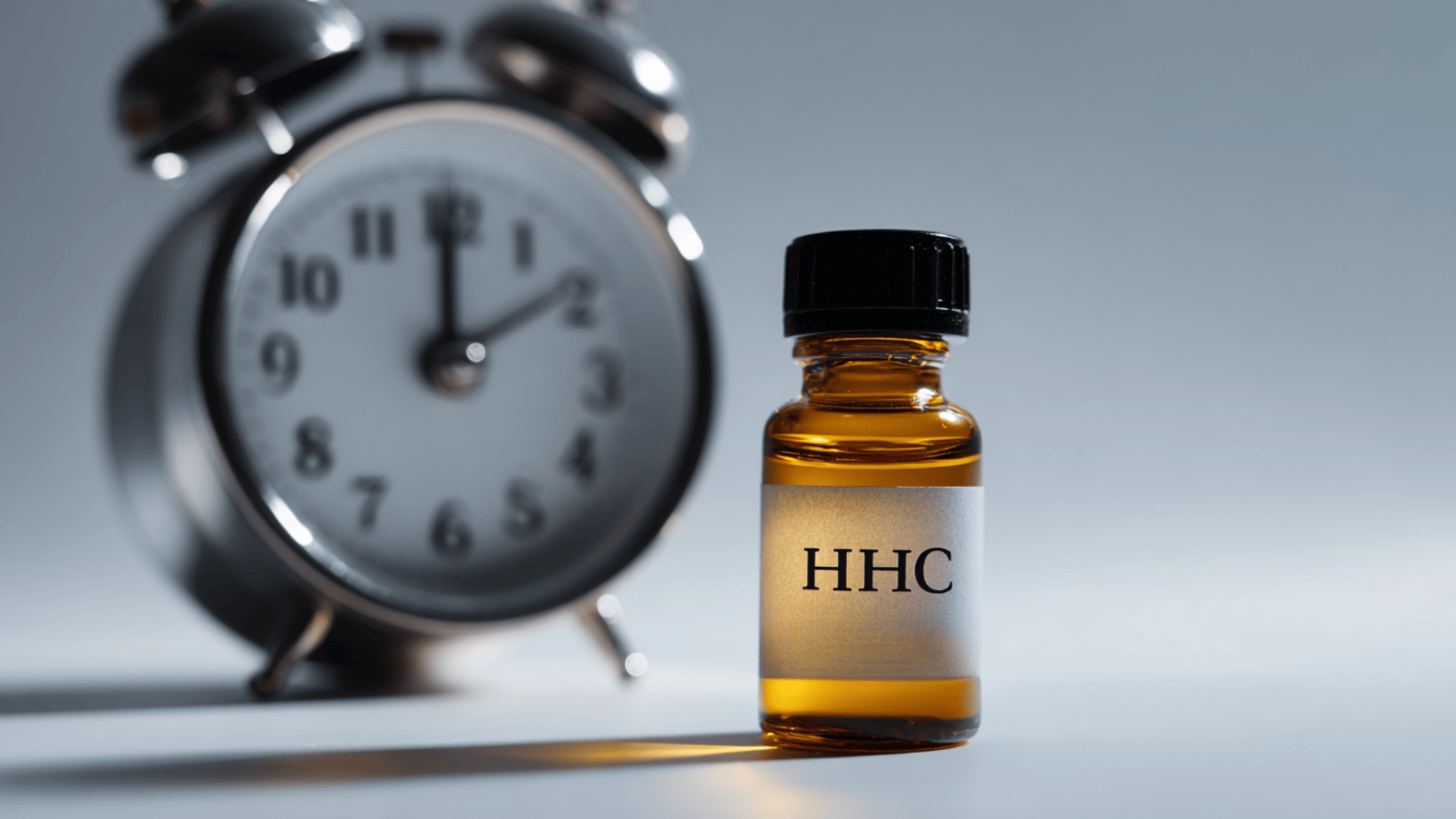
When you consume HHC, it’s absorbed and metabolised by your liver. It’s fat-soluble, like THC, so it can build up in fatty tissues and be released slowly over time.
The metabolic pathway isn’t 100% understood yet; more studies are needed, but current evidence suggests:
- Occasional users: HHC metabolites may clear in 3 to 7 days.
- Moderate users: Clearance may take 1–2 weeks.
- Heavy or chronic users: Metabolites may linger for up to 30 days or more, especially if body fat is higher.
Compared with Delta-9 THC and Delta-8, the time frames are similar, though individual variation is large.
So if you’re trying to estimate when to stop using before a test, consider your usage pattern and body type, and give yourself as much lead time as possible.
How to Avoid a Failed Drug Test
If you know a drug test is coming up, here are practical tips to reduce your risk.
Note: None of these are guaranteed.
- Abstain: The safest move is to stop using HHC well before the test. The longer you avoid it, the lower the risk.
- Check product purity: Some HHC products may contain undeclared THC or other cannabinoids. “THC-free” claims aren’t always reliable.
- Hydrate and stay healthy: While drinking water, exercising, and eating clean food won’t erase metabolites overnight, supporting your metabolism is helpful.
- Avoid detox “quick fixes”: Many marketed detoxes are not backed by strong evidence, and relying on them could give you a false sense of security.
- Know your employer’s policy: Are they testing for THC? Do they specify what counts as a positive? Knowing this helps you plan.
Bottom line: if you have a test coming, especially in a job or legal context, using HHC is not risk-free. Abstaining is the only surefire approach.
What Happens If You Fail a Drug Test for THC?
Failing a drug test can have real consequences. Here’s what you should know:
Employer implications: You could face disciplinary action, lose job offers, or be required to enter substance abuse programs, depending on the company.
Legal or probation contexts: A positive could affect probation terms, lead to additional testing, or impact legal status.
Different test types matter: Pre-employment screenings, probation tests, and DOT (Department of Transportation) tests may each have distinct rules and thresholds.
If you believe a test result is a false positive (for example, due to HHC use rather than THC), you might:
- Request a confirmation test (e.g., GC-MS or LC-MS) that can (sometimes) distinguish compounds more precisely.
- Save proof of product purchase or lab testing (if available) to show the claimed contents of what you consumed.
- Consult with HR or legal counsel if applicable.
Remember: test failures don’t always mean wrongdoing, but they do mean you should tread carefully and act informed.
Expert Insights & Scientific Findings
Recent forensic toxicology research analysed HHC and its metabolites and found that HHC compounds are detectable in biological samples.
Studies have noted that while standard tests aren’t designed to detect HHC specifically, the structural similarity to THC means HHC metabolites could yield positive results.
Experts caution that the data is still limited. Because HHC is relatively new and not yet widely used, we don’t yet have large-scale studies covering every use scenario, body type, and test sensitivity.
As one toxicologist put it: “Treat HHC like a potential risk if you’re being tested, because the margin for error is real.”
So while the science isn’t 100% settled, the emerging consensus is: yes, there’s a meaningful risk of detection or false positives if you use HHC and expect to be drug tested.
Conclusion
In my view, if you’re using HHC and you have a drug test on the horizon, you should proceed with caution.
Even though HHC isn’t the direct target of most tests, its metabolites can mimic those of THC and lead to positive results. Detection windows vary a lot, from a few days for occasional use to several weeks for heavy use.
To avoid risking your job, probation, or other screening outcomes, the safest route is to abstain.
Keep yourself informed, check your products, and if you’re in a testing environment, consider steering clear of HHC altogether.
Frequently Asked Questions
Does HHC trigger all drug tests?
No. HHC itself usually isn’t the target, but the metabolites may overlap with those for THC, so your test might flag you anyway.
Can detox products remove HHC entirely?
Not reliably. Most detox products are unproven and cannot guarantee the removal of metabolites in time for a test.
Are there HHC products safe for testing?
There’s no guaranteed “safe” HHC product if you will be tested. Trace contamination with THC or unknown metabolite behavior makes all use a risk.
Does HHC have THC in it naturally?
Not necessarily. But manufacturing processes may leave residual THC, or products may be mislabeled. Always check for third-party lab results when possible.

